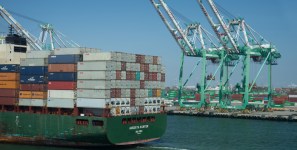Shipping Industry Faces Tough Choices Under New FuelEU Maritime Regulations
As the implementation of the FuelEU Maritime regulation approaches, shipping companies are grappling with the challenge of meeting stringent carbon intensity reduction targets or facing escalating penalties. Set to take effect on January 1, 2025, the regulation imposes progressively tighter limits on the greenhouse gas (GHG) intensity of energy used on ships, with the requirements becoming stricter every five years.
Read also: Innovative Strategy Reduces Cargo Ship Emissions by 17.3%
The GHG intensity standards apply to all energy consumed during voyages and port calls within the EU, as well as 50% of voyages entering and leaving the EU. To comply, shipping companies must either pay a FuelEU penalty or take steps to reduce their GHG intensity to meet the regulation’s limits. This can be done by using alternative fuels such as biofuels or LNG/LPG, or through pooling, where vessels that exceed their targets can offset those that underperform.
However, Albrecht Grell, Managing Director of Hamburg-based maritime intelligence firm OceanScore, noted that many shipping companies, particularly smaller ones, are opting to pay the penalty rather than explore pooling. He cautioned that this strategy, along with deferring compliance through borrowing that incurs interest, will become increasingly expensive over time.
Currently, the penalty for exceeding GHG intensity targets is €2,400 per tonne of VLSFOe (very-low sulphur fuel oil). This penalty is set to increase by 10% each year for continued non-compliance, reaching €3,360 in 2029, according to OceanScore.
Grell advised companies to consider biofuels and pooling as more cost-effective options to reduce compliance deficits. He emphasized the importance of understanding the market dynamics that influence the availability and cost of pooling slots, as well as the potential to monetize compliance surpluses by sharing them with third-party vessels.
Friederike Hesse, co-founder and Managing Director of maritime carbon solutions platform zero44, added that the most economical approach to compliance will vary by company. Factors such as trading patterns, exposure to the EU, availability and cost of sustainable fuels, and agreements with stakeholders will all play a role. Hesse stressed that optimizing FuelEU compliance will require ongoing effort, with companies needing to track their options and find the best strategy for each compliance period.
As the deadline nears, shipping companies must carefully weigh their options to navigate the new regulations while minimizing costs.





Leave a Reply